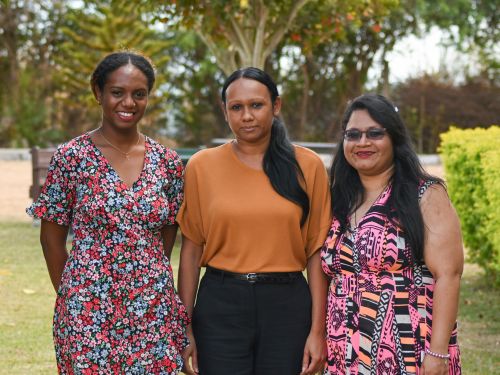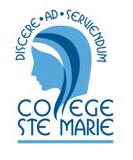SOCIOLOGY DEPARTMENT
Sociology
-
Sociology Department CSM 2024
- From left to right – Ms Béatrice Lascar, Mrs Joanna Pitchamootoo-Fra, Ms Karen Parsooramen (HOD)

- No requirements from Cambridge, but it is recommended to choose the subject in form 4 if the student is planning to select the subject at A-levels.
Activities:
- Non uniform day organised. Trip to Rodrigues in 2015 with Form 5 and Upper.
Skills developed:
- Students will gain lifelong skills enabling a better understanding of who we really are and knowledge about society we are living in. Also, pupils will learn aspects of social investigations while studying social issues such as inequality, the family or education.
Learners studying AS and A Levels have the opportunities to acquire an in-depth subject knowledge, develop independent thinking skills, apply knowledge and understanding to new as well as familiar situations, handle and evaluate different types of information sources, think logically and present ordered and coherent arguments, make judgements, recommendations and decisions. Students can present reasoned explanations, understand implications and communicate them clearly and logically work and communicate in English. (Cambridge Syllabus).
Changes:- A new syllabus was adapted for O level syllabus in 2015 and A-level in 2014.
- Form 1 to form 3 Social Studies covering History, Geography and Sociology.
- Form 4 to Upper Sociology
Subject Content:
O level Syllabus:
A Level Syllabus:
|
Paper 1 |
||
|
Unit 1
|
Theory and Methods |
|
|
Unit 2 |
Culture, identity and socialisation |
|
|
Unit 3 |
Social inequality |
|
|
Paper 2 |
||
|
Unit 4 |
Family |
|
|
Unit 5 |
Education |
|
|
Unit 6 |
Crime, deviance and social control |
|
|
Unit 7 |
Media |
|
Subsidiary Level ( AS) :
|
Subsidiary level (AS) |
||
|
Paper 1 : Unit 1 |
The family |
The family and social change Family roles, marriage and changing relationships The social construction of age |
|
Paper 2: Unit 2 |
Theory and Methods |
The sociological perspective Socialisation and the creation of social identity Methods of research The relationship between theory and methods |
|
Main (A Level) |
||
|
Paper 1 and paper 2 |
||
|
Paper 3: Unit 3
|
Education |
Education in social context Structures and processes within schools |
|
Unit 4
|
Global development |
Development and inequality Global issues |
|
Unit 5 |
Media |
Ownership and control of the media Media representation and effects |
|
Unit 6 |
Religion |
Religion and social change Religious movements |

